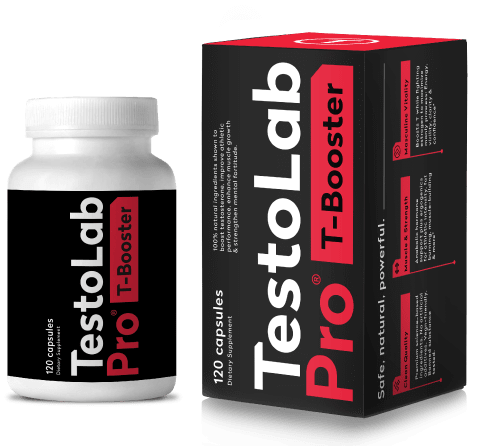Finding the right supplements can be tricky, but once you’ve found them, the battle isn’t over—there’s also things like when to take them, if they should be consumed with or without food, and if they can be combined with other nutrients.
Navigating the world of supplements can be a big challenge, but we’re here to take some of that stress away.
We’re talking about the importance of getting enough zinc in your diet—either through food or supplementation—and when the best time to take zinc is to maximize its benefit.
What Is Zinc And Why Take It?
Zinc is one of seven trace minerals that are required by the body for optimal performance. It is one of the most widely used metals for the biological function of various enzymes and proteins, making it essential to proper body function.
To be specific, more than 300 enzymes representing over 50 different types are known to require zinc for their function 1. That’s things like oxidoreductases, transferases, hydrolases, lyases, and ligases that are involved in:
- Gene expression
- Enzymatic reactions
- Immune function
- Protein synthesis
- DNA synthesis
- Wound healing
- Growth and development
Zinc deficiency is a common issue among several populations and is usually due to abnormalities in zinc metabolism, which can be due to insufficient dietary intake, increased requirements of excretion, conditioned deficiency, or genetic causes 1. Chronically low levels of zinc have been linked to 1, 2:
- Cognitive impairment
- Weakened immunity
- Male reproductive issues
- Poor growth and development
- Hypogonadism
- Reduced blood count
While this list isn’t inclusive by any means, a severe zinc deficiency has been known to interfere with several organ systems, including the epidermal, gastrointestinal, central nervous, immune, skeletal, and reproductive systems 2.
Zinc Absorption
Just because you’re supplementing with 30mg of zinc doesn’t actually mean your body is absorbing that amount. The reason is because zinc absorption and bioavailability aren’t as straightforward as some other vitamins or minerals.
The amount of supplementary zinc absorbed depends not only on dietary zinc content but also on intestinal zinc bioaccessibility and bioavailability 3.
Bioaccessibility is the potentially free and absorbable zinc concentration in the intestinal lumen, whereas bioavailability describes the amount of zinc actually absorbed by cells and released into the blood, making it available for systemic circulation and body homeostasis.
And because zinc absorption is affected significantly by the presence of other compounds and physiological factors (phytates, minerals, intestinal lumen mucous layer, etc.), it’s best to take zinc on an empty stomach to increase absorption and limit any potential to reduce bioavailability.
The Best Time To Take Zinc
So, when is the best time to actually take your zinc supplement? To be frank, there is no ‘best’ time. Some vitamins are most effective when taken before bed (magnesium, for example), whereas others are best taken with meals or right in the morning to support energy production. With zinc, the only thing you want to be mindful of is taking it with food.
When you take your zinc supplement is totally up to you, be it in the morning, afternoon, or night, but it’s important to know that absorption is highest when taken on an empty stomach.
So, if you’re going to consume it in the evening, ensure it’s a minimum of one hour before a meal to avoid nutrient interactions and absorption interference.
Part of the reason it’s recommended to take away from food is because zinc interacts negatively with several minerals, including calcium, iron, and cadmium; they compete for the same binding sites, so meals rich in these minerals will impede on zinc absorption.
As such, if you consume dairy, try to avoid supplementing with zinc either during or shortly before/after consuming it.
However, some studies suggest that zinc may be involved in sleep regulation due to its role in the central nervous system 4.
What’s interesting is that research has shown that plasma zinc concentrations, while tightly controlled by various mechanisms, exhibit a circadian variation, with the lowest concentrations being measured in the evening and reaching their peak in the morning.
While the regulatory mechanism remains unknown, zinc has a newfound role in regulating the sleep-wake cycle, so taking zinc at night could be beneficial for sleep.
There’s also a link between melatonin and zinc, as zinc is needed to synthesize melatonin, and the presence of melatonin may increase zinc absorption.
As such, zinc deficiency correlates to reduced melatonin levels, so supplementing with zinc may support increases in melatonin production 5.
Final Thoughts
Long story short, when you take your zinc supplement is open to trial and error. If it works best for you at night, take it at night; if it’s easiest to remember in the morning, take it in the morning.
The only thing you want to remember is to take it away from food to maximize absorption and the benefits you get.
However, if it makes you a bit queasy, try adding it into a small meal to prevent any unpleasant GI effects.
References
- BL Vallee, KH The biochemical basis of zinc physiology.Physiol Rev. 1993;73(1):79-118.
- M Hambidge. Human zinc deficiency. J Nutr. 2000;130(5S Suppl):1344S-9S.
- M Maares, H A Guide to Human Zinc Absorption: General Overview and Recent Advances of In Vitro Intestinal Models.Nutrients. 2020;12(3):762.
- Y Cherasse, Y Dietary Zinc Acts as a Sleep Modulator. Int J Mol Sci. 2017;18(11):2334.
- CS Bediz, AK Baltaci, R Mogulkoc. Both zinc deficiency and supplementation affect plasma melatonin levels in rats.Acta Physiol Hung. 2003;90(4):335-339.

